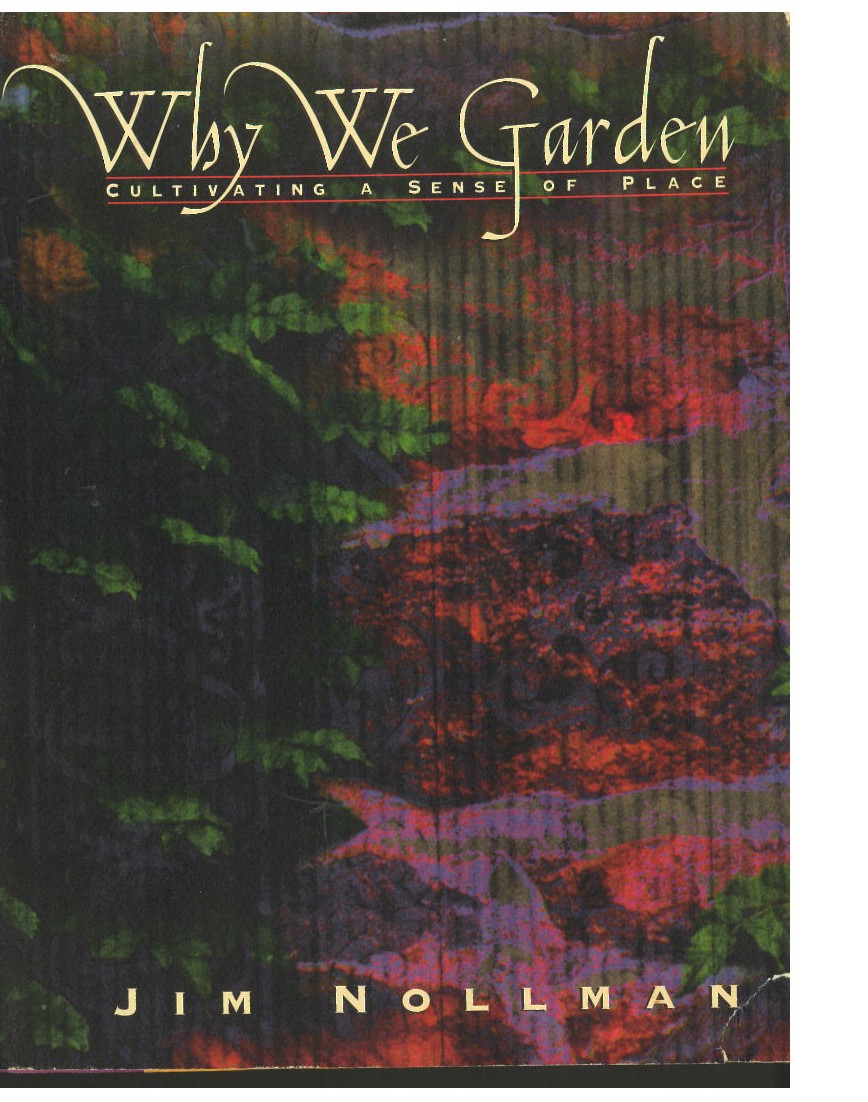Cultivate a deeper sense of life
Why We Garden: Cultivating a Sense of Place © 1994 Jim Nollman
© 2007 Beth HelstienInsight of the day: it’s hard to write cogently about the things one cares about the most. I found this out recently when I struggled to with a paper for a graduate class in library science. As I researched and wrote on a subject of personal interest, I focused on academic concerns about my topic—not my own interests—and what I wrote was less and less interesting to me. Likewise, reviewing Jim Nollman’s book, one of my favorites, has been a struggle. I can’t say “everyone should read this book!” because it isn’t a book for everyone.
In the book, readers are introduced to ideas about a sense of place. Cultivating a Sense of Place is a spiritual stance and a political statement, one step we can take against the homogenizing policies of the World Trade Organization (WTO), the World Bank or the G8. Yet developing a sense of place is more than a political statement. A sense of place begins with the land and the creatures on it; and that view places humans in the environment on a more equal footing with other beings, including sentient plants, or “the *9@=%$!! deer that ate my (fill in the blank)”. A sense of place leads one to reexamine assumptions about beauty, diet, health and medicine from a different perspective. A sense of place demands a new ethical awareness.
Gardening is one of the largest sections in our local library, and gardening books are checked out at all times of year. And anyone who spends time in the library is sure to overhear the nearly constant conversations among the volunteers and staff about their gardens (and raccoons, birds and other garden visitors). My husband and I have seventeen raised beds inside the deer fence—that is, the fence that keeps the deer out—and fruit trees growing outside (where Cedar Waxwings harvested all the cherries last year), but I haven’t been much of one to read about gardening: I just do it.
Yet, more than five years ago, I read Why We Garden, and was surprised to find myself in tears. Nollman’s musings constitute a philosophy of living that speaks deeply to me. He doesn’t purport either to have all the answers, or to see answers as the ultimate value. His attitude—freed from a quantitative perspective to a point of view that also embraces individual experimentation, intuition and myth as important to human learning—is refreshing. That attitude may put off some readers.
His highly literate—even poetic—style may put off others, although for me the quality of the writing is one of the pleasures of the book. Republished in 2005 after several years out of print, Why We Garden remains a favorite that I will continue to recommend, knowing that it won’t work for everyone.
Why We Garden: Cultivating a Sense of Place, like all books reviewed here, may be found at the San Juan Island Library.
